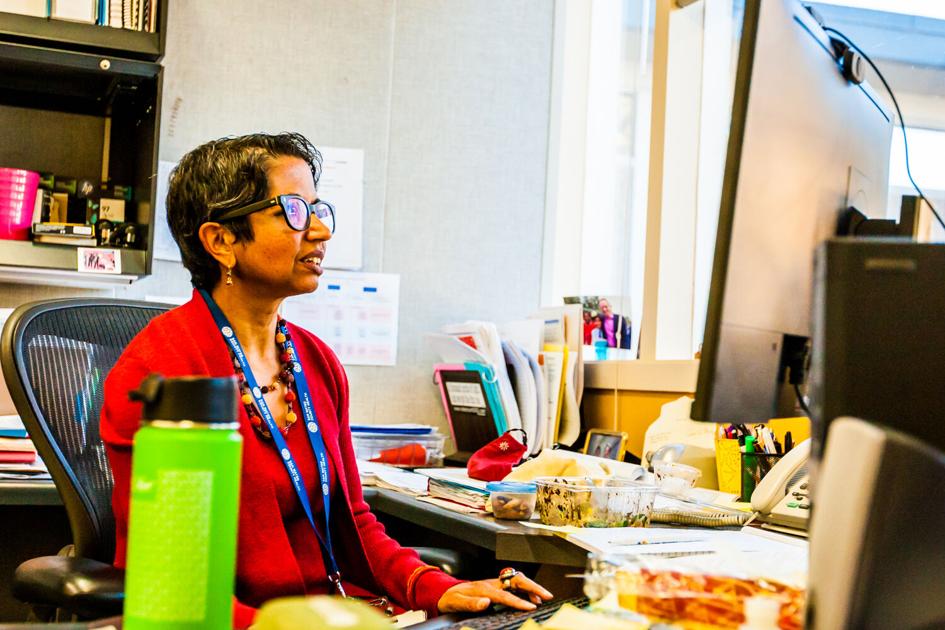
Under supply restrictions, San Mateo County officials are studying ways it can help residents access second-dose COVID-19 vaccines after canceling tens of thousands of appointments through Sutter Health.
“We have not received supply to intervene in this role to mitigate the impact,” Deputy Health Director Srija Srinivasan said during a virtual press session on Wednesday. “But we would definitely like to work with Sutter partners on all avenues that could be accessed if appointments are available and the right vaccine.”
Sutter Health said in a statement that supply constraints have put at risk approximately 90,000 vaccine appointments. The health care provider stopped scheduling the first dose appointments in early February due to “insufficient vaccine allocation” and eventually had to postpone any other appointments with the first dose until 9 p.m. March, according to the statement.
Currently, Sutter staff continues to work to inform patients of cancellations. Those whose appointments have been canceled will receive a call within seven to ten days to reschedule it, Sutter Health said.
“We have been urgently asking the state for the additional allocations we need in order to avoid canceling the more than 90,000-second dose of vaccination appointments that are currently in our books,” the statement reads. “This is an extremely unfortunate situation for our patients and that is preventable if we manage to supply additional vaccines.”
Distribution challenges
Srinivasan said the county was informed of cancellations of vaccine appointments Tuesday night and on Wednesday began studying how many San Mateo County residents were affected. A figure was not available as of Wednesday.
The county has experienced its own supply challenges, including delays in shipments due to intense winter storms affecting much of the country. Last week, officials had to borrow doses of vaccine from health partners, though not Sutter, to move forward with clinics planned for teachers and police officers, Srinivasan said.
Vaccine clinic planning has also been challenged by late state updates on how many doses the county is expected to receive. This week’s dose delivery has not yet been received and the state has not provided any information on next week’s allocation to the county, Srinivasan said.
“We have worked to ensure that we have a second dose for every first dose we administer, so we do not need to be in a position of uncertainty,” Srinivasan said.
Still, Srinivasan said the county is interested in working with Sutter to help mitigate the effect of second-dose cancellations on San Mateo County residents.
The second doses of the vaccines Moderna and Pfizer Inc. they can be administered up to six weeks after the first dose, according to the Centers for Disease Control and Prevention. Patients will not have to restart the series if a second dose is given after the six-week window, although data on the effectiveness of both vaccines are limited afterwards.
It is not advisable to change vaccines for second doses, Srinivasan noted.
Vaccine progress
Despite supply challenges, Srinivasan and county manager Mike Callagy expressed optimism about the recently approved Johnson & Johnson vaccine. Approximately 1.1 million doses are expected to reach the state over the next three weeks, state Sen. Josh Becker, D-San Mateo, said during a news conference Monday.
“The best shot is the one that goes in your arm,” Callagy said. “We encourage everyone to get any vaccine available as soon as it is available.”
Srinivasan also highlighted an announcement by the Biden administration that the country will have secured enough doses for every adult in the United States before May.
More than 159,000 residents have received at least one dose in the county, more than half going to people over 65. Of the county’s population aged 65 and over, 66% have received at least the first dose.
Two months after the vaccination of the elderly, the county is working to address barriers to access for the rest of the elderly without vaccination, including the elderly or those who cannot access the mass vaccination sites.
Officials are also focused on creating efficient and accessible roads for underserved communities, Callagy said. Recognizing the population of essential workers living in East Palo Alto and Redwood City, two hard-hit communities, Srinivasan said the county is partnering with local organizations to build trust and confidence in the county’s vaccination efforts.
“It is absolutely a county priority to make the vaccine as equitable as possible,” Srinivasan said. “We definitely take responsibility.”
On Friday and Saturday, a two-day clinic will be held at the San Mateo County Event Center for Phase 1B health workers and essential workers, including education staff, food and agriculture workers, retail employees and police officers and the elderly.
Planned changes
On March 15, the state is expected to extend eligibility to residents 16 years of age or older at higher risk of contracting the virus due to the underlying medical conditions, according to the supply.
In addition, Callagy said an announcement by Governor Gavin Newsom is expected this week that will describe possible changes to the vaccine distribution, the reopening system by state levels, or both.
The county is currently in the second most restrictive red level in the state, indicating the potential for substantial spread of the virus. After being at the red level for a week, the county will have to stay there for two more weeks and meet the criteria for the next orange level for two consecutive weeks before the additional restrictions are removed, in the current framework.
Recognizing a decrease in COVID-19 infections and movement in the front of the vaccine, officials still warned residents to be alert to the practice of safety precautions.
“We hope and pray that this trend will continue as more vaccine deployments occur in this county, but we must also be vigilant because we know we are not there yet,” Callagy said. “The light is definitely at the end of the tunnel.”
Visit the county website at smchealth.org/covid-19-vaccination for more information on vaccination efforts.
(650) 344-5200 ext. 106